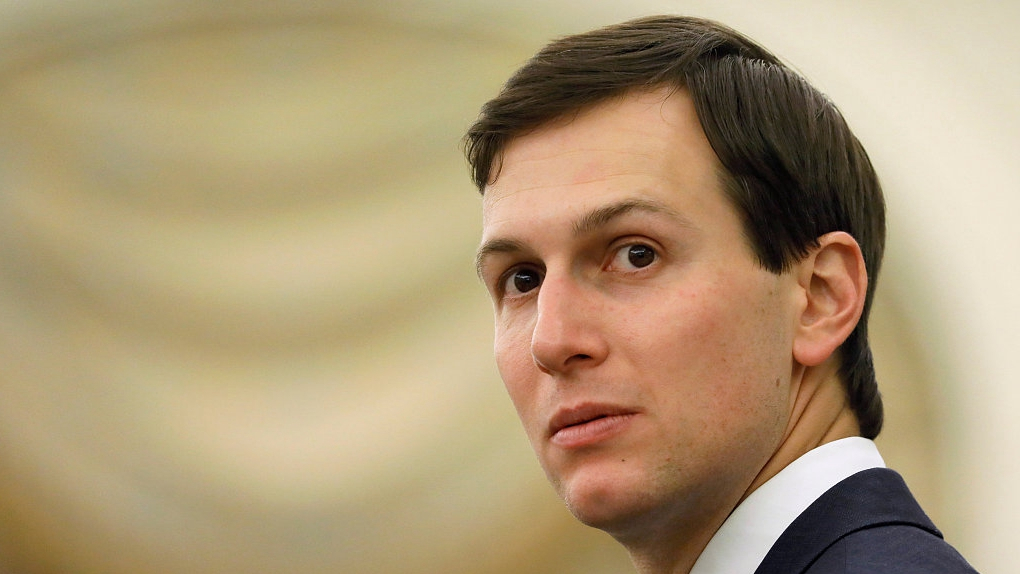

The Trump administration launched a 50 billion U.S. dollars economic formula for Israeli-Palestinian peace on Tuesday, saying an investment program for the Palestinians was a precondition for ending the decades-old conflict.
U.S. President Donald Trump's senior adviser and son-in-law Jared Kushner opened a two-day international meeting in Bahrain to rally support for the blueprint, which has met broad disdain from Palestinians and others in the Arab world although regional U.S. allies such as Saudi Arabia discreetly support it.
"We can turn this region from a victim of past conflicts into a model for commerce and advancement throughout the world," Kushner told the gathering, attended by the heads of the International Monetary Fund and World Bank.
Palestinian President Mahmoud Abbas, whose Palestinian Authority exercises limited self-rule in the Israeli-occupied West Bank, was scathing about its prospects:
"Money is important. The economy is important ... The political solution is more important."

Mahmoud Abbas, president of Palestine, delivers a speech at the United Nations General Assembly in New York City, September 27, 2018. /VCG Photo
The political details of the peace plan, almost two years in the making, remain secret. Neither the Israeli nor Palestinian governments attended the curtain-raising event while several Arab states stayed away or sent deputy ministers.
The conference is taking place in Bahrain, home to the U.S. Navy's Fifth Fleet, amid high tension between Tehran on the one hand and Washington and its allies Saudi Arabia and the United Arab Emirates on the other. All share a common foe with Israel in Iran.
Israeli Prime Minister Benjamin Netanyahu, a close Trump ally, said Israel was open to the proposal.
Washington will be hoping that wealthy Gulf Arab states show a concrete interest in the plan, which expects donor nations and investors to contribute 50 billion U.S. dollars to the Palestinian territories, Jordan, Egypt and Lebanon.
"To be clear, economic growth and prosperity for the Palestinian people are not possible without an enduring and fair political solution to the conflict ... one that guarantees Israel's security and respects the dignity of the Palestinian people," Kushner said.
"However, today is not about the political issues. We will get to those at the right time."
It is not clear whether the Trump team plans to abandon the "two-state solution," which involves creation of an independent Palestinian state living side-by-side with Israel.
The United Nations and most countries back the two-state solution, which has underpinned every peace plan for decades, but Trump's team has consistently refused to commit to it.
Any solution must settle long-standing issues such as the status of Jerusalem, mutually agreed borders, Israel's security concerns, Palestinian demands for statehood, and the fate of Israel's settlements and military presence in territory where Palestinians want to build that state.
Palestinian leaders boycotted the conference, and are refusing to engage with the White House, accusing it of pro-Israel bias. Breaking with the international consensus, Trump in 2017 recognized Jerusalem as Israel's capital, infuriating the Palestinians and other Arabs.
However, Palestinian and Israeli businessmen are attending, as are some Gulf and U.S. companies, including Blackstone Group, whose chief executive Stephen Schwarzman said Kushner's economic plan was "not unachievable."
More than half of the 50 billion U.S. dollars would be spent in the Palestinian territories over 10 years. The rest would be divided between Lebanon, Egypt and Jordan, the country that has absorbed more Palestinians than any other, and fears anything that might lead to their permanent settlement there.

Copyright © 2018 CGTN. Beijing ICP prepared NO.16065310-3
Copyright © 2018 CGTN. Beijing ICP prepared NO.16065310-3